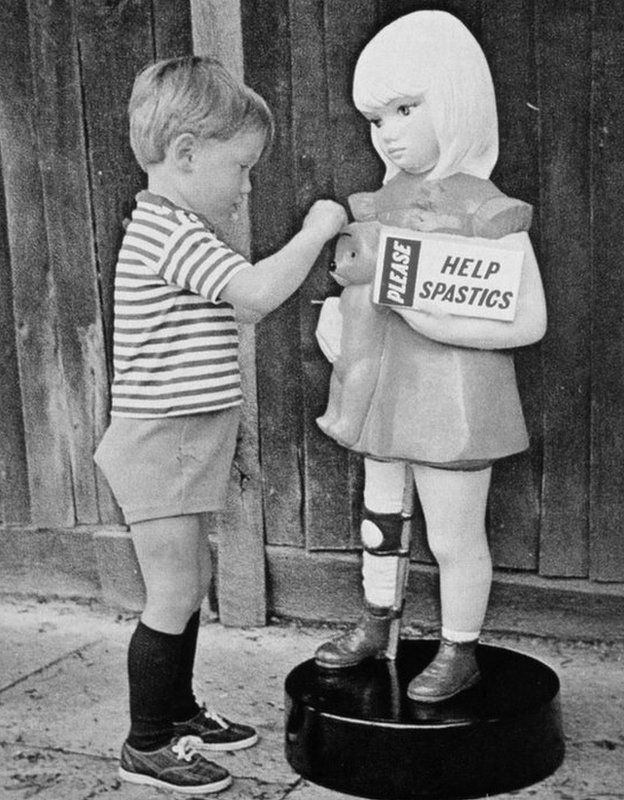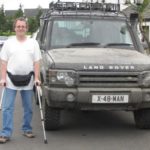I always find it interesting how language changes and evolves. Also, how something can cause a great deal of offence to some people, while being perfectly acceptable to others. Or of course, acceptable, while knowingly & deliberately being used to cause offense?
In the world of people who have a disability, this is even more so. Even the previous sentence was a clumsy construct due to my deliberate use of the phrase “people who have a disability” rather than the more simple “disabled people”. Or ‘the disabled community‘. Then there is the even snappier ‘the disabled‘. I’ve actually had it said to me, while in a professional, managerial position, interviewing someone;
“I’ve always wanted to work with the disabled”.
Well here’s a thought, in an interview, where the potential boss has a visible physical disability, don’t use language that makes the potential boss feel simultaneously dehumanised and patronised!
But mostly there is language that winds me up, even though it is commonly accepted by most people;
“Disabled Parking”
“Disabled Toilet”
In my head, a “disabled parking space” is a normal parking space with a big cone in the middle of it and a sign saying ‘no parking’. A “disabled toilet” is a broken toilet with the water turned off, so that it can’t be used. The parking space or the toilet have ‘been disabled‘. What I need when I’m out in my car is an ‘accessible parking space‘. One with a larger area around it so that I can open the door fully. Enough room for me to lift my wheelchair in & out. Perhaps even, a bit longer parking time, to take in to account that it takes longer for me to do ‘stuff‘?
Likewise, I need an “accessible toilet”. One that has more space so that I can ‘access’ it in my wheelchair. No steps. A grab rail or two would be nice. For many people who have a disability, the reason they don’t go out, in to the community, is a lack of toilets that are ‘accessible‘. There is a campaign growing for more ‘changing places,’ fully accessible toilets, so that people with more complex physical disabilities can go in to the community, knowing that they can visit a lavatory.
You know, something most people take for granted?
As far as I’m aware, there is only one on the Isle of Man (at the Manx Museum in Douglas). We have a hospital that doesn’t have toilet facilities for visitors or people at outpatient appointments, who have more complex physical disabilities. That’s probably another blog of its own, [Edit: And here it is] but in the mean time, have a look at http://www.changing-places.org
Accessible toilet, not ‘disabled toilet‘.
Accessible parking not ‘disabled parking‘.
Then there is the word “spastic”. What a complex word that is! Those of us of a certain vintage will no doubt remember the plastic figure of a small child, wearing callipers on their legs, holding a collection box for the ‘Spastics’ Society‘?

The Spastic Society was formed by the families of three children who had cerebral palsy, back in the 1950’s, who were frustrated that they couldn’t access education for their children (inclusive education? How dare they make such a demand???)
By the 1970’s & 80’s ‘spastic‘ or ‘spaz‘ were a horrible school playground insult. Simply writing in that context makes me feel uncomfortable. But even then, there were very few children who had cerebral palsy in mainstream schooling to hear the derogatory term… so that was okay then.
In 1994, the Spastic Society became ‘Scope’.
The word still has context though. As a Registered Nurse, I’ve written “spastic” in people’s nursing notes. Spasticity in muscle tone or a spastic colon are examples of the medical use.
And then we have ‘cripple‘. Another word that can be historically charitable, literal or an insult depending upon context. There is a very old charity that still exists on the Isle of Man, called ‘The Cripples’ Guild‘. It was formed in 1915, originally as ‘The Isle of Man Crippled Children’s Fund‘. It was actually very progressive for the time, formed by the Reverend Arthur Kenyon, who recognised the link between increased instances in disability due to poverty. For example rickets due to poor nutrition. Also, the fund offered financial support to purchase specialist equipment and to try and help children with physical disabilities in to education. The same issue that The Spastics Society was formed to address nearly forty years later.
I was off work, recovering, after acquiring my disability. It was getting close to the time when I began a phased return to work. At that time, I managed two main services, that each had a Team Leader. We would regularly go to the local supermarket and buy bits for lunch; bread, cheese, salad etc. On this particular day, I was bored and feeling a bit nosey as to what was happening at work in my absence (they were fine, they didn’t need me!) I had a drive through and went in to the building in my wheelchair. I said ‘hi’ to the people who lived there and the staff, bringing them up to date with how things were progressing. Then I suggested that the Team Leaders and I went to the supermarket to get some lunch.
One of the Team Leaders (Bev) had only ever known me through work. The other (Michelle) had known me for (by that time) about fifteen years, both professionally and as a friend. When we got to the till, Michelle bagged the food up in a plastic bag, tied a knot in it, then from a couple of feet above me, dropped it in to my lap, saying “might as well make some use of you”. The lad on the till was obviously shocked and looked at me. I said to him “don’t worry, it is pick on a cripple week”. Poor Bev almost dislocated her jaw, it dropped so far! She eventually managed to splutter “you can’t say THAT!”
I laughed as I replied… “No, YOU can’t say that… I can”.
It’s a word that Bev finds utterly repulsive. In fact, if she reads this blog, she will probably have a similar response now as she had then, simply reading the word.
But it is the context that matters.
After all, like ‘spastic’, ‘cripple’ is still an acceptable, non-offensive term. “I was crippled financially”. “The economy will/will not be crippled by Brexit” (depending upon your point of view). That’s not offensive because “crippled” in that context simply means “broken”.
So perhaps instead of a ‘disabled toilet‘ we should say a ‘crippled toilet‘, thus differentiating it from an accessible one?
If you want to subscribe for updates, just visit HERE
Or visit the HOME page for other blogs.


